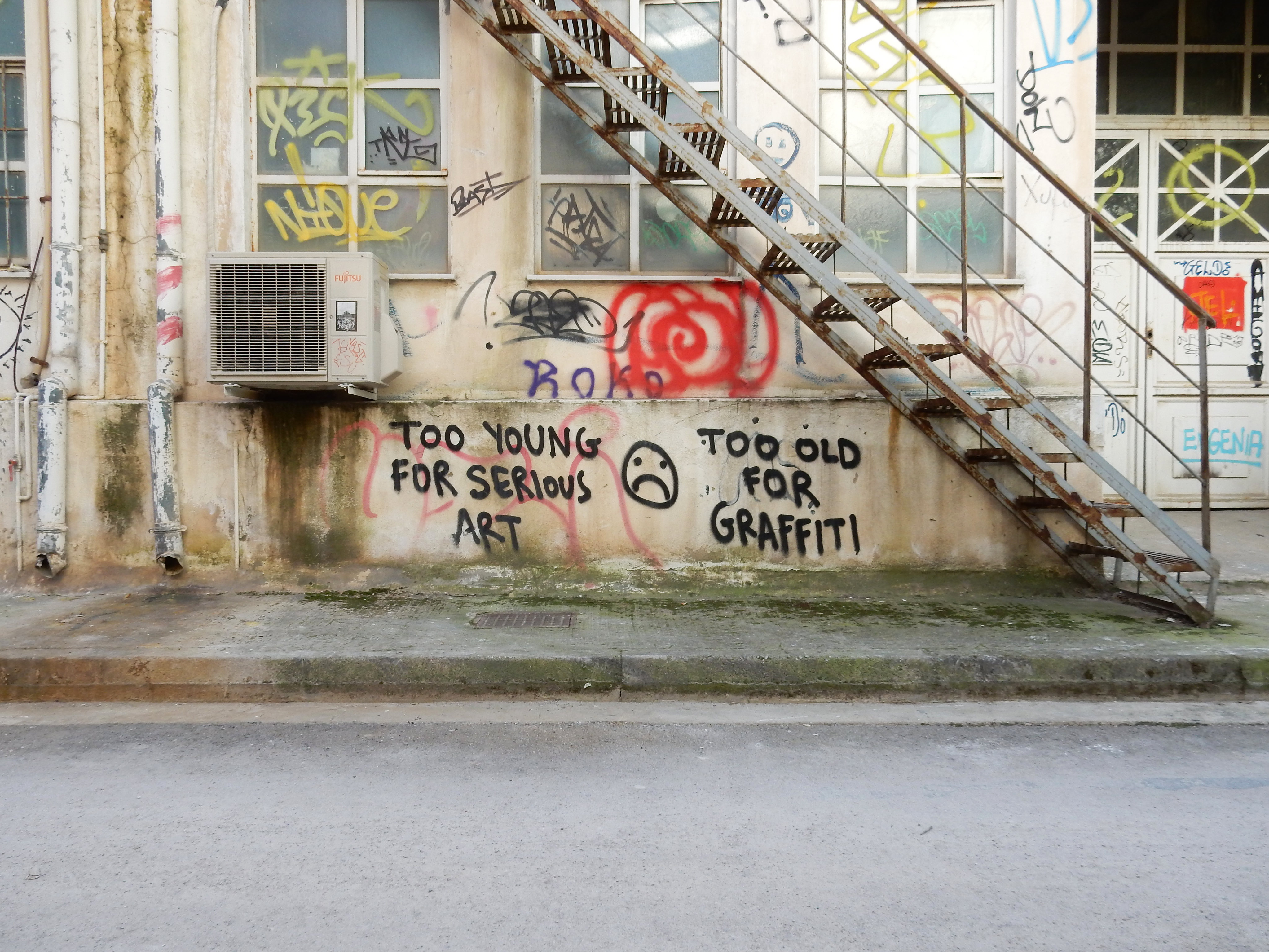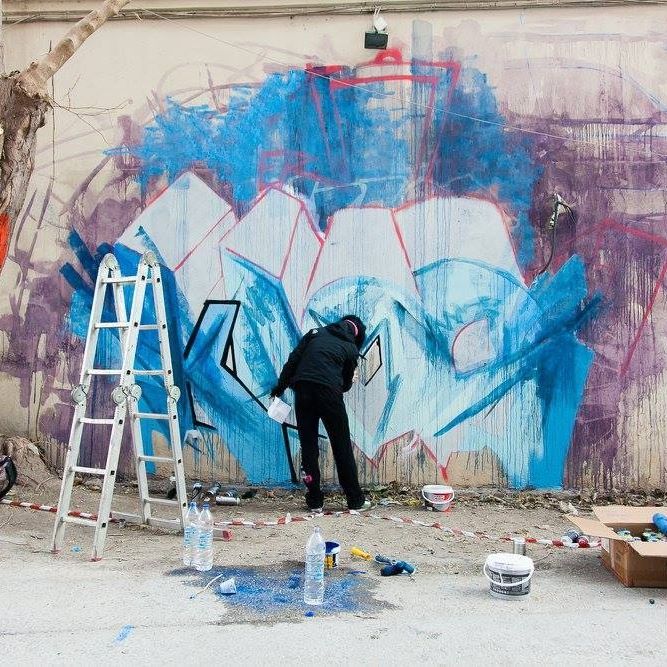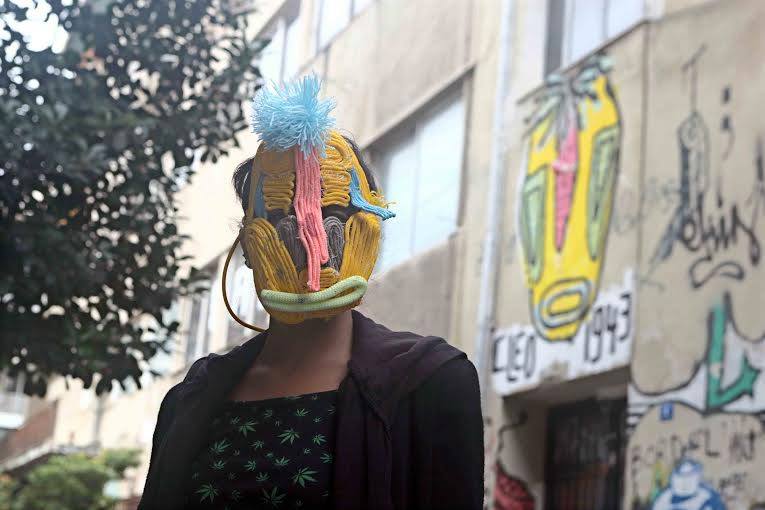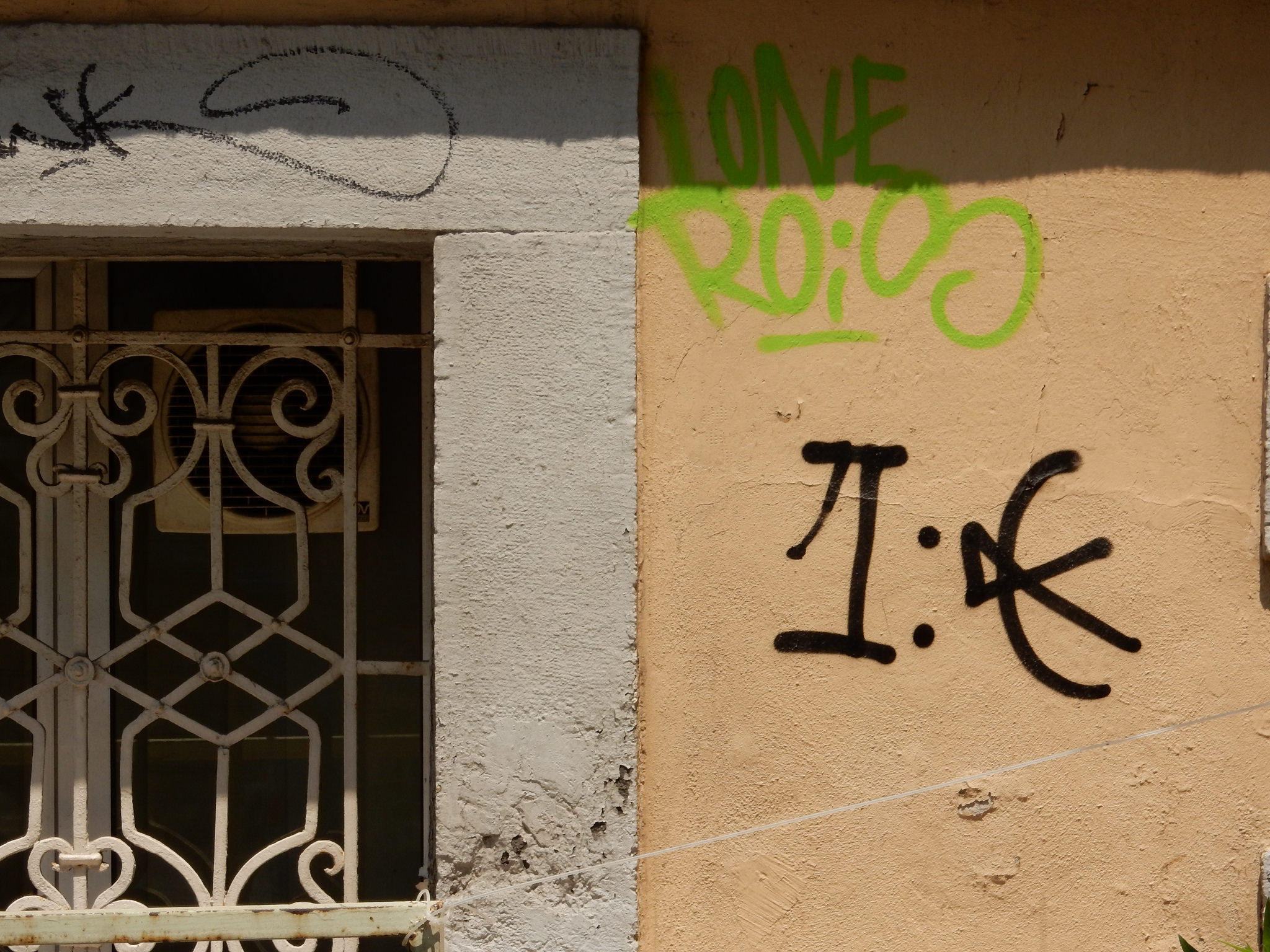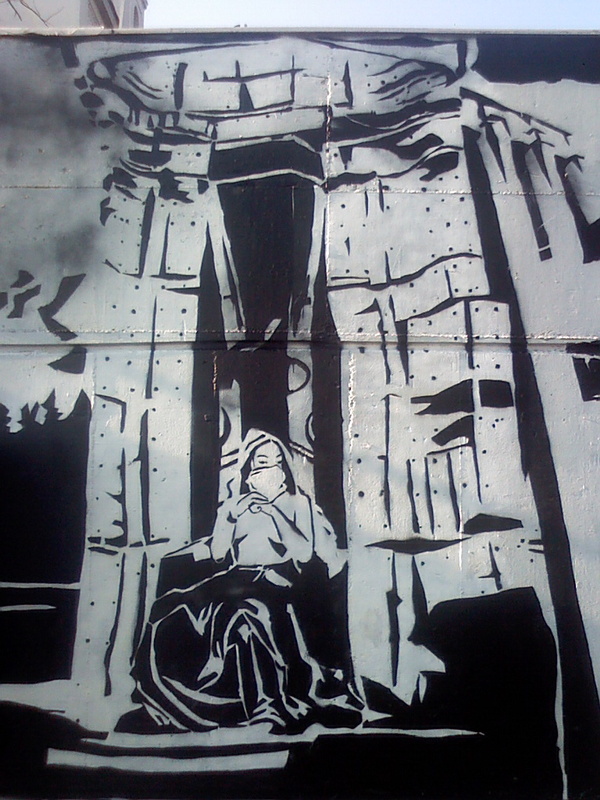I first came across one of the impressive stencils of AFI while researching political street art dealing with the European elections and have been a fan of her strong political works ever since. I was lucky enough to ask her some questions about her motivations and artistic process as well as her perspective on the current crisis. AFI was born and raised in Northern Greece but is currently based in London. Her artworks can be found in Thessaloniki, Athens, Hamburg, and London. Find more of her works here.
How did you first get involved in street art/graffiti? What was your original motivation? Who and what were you inspired by?
I am an artist as well. I mean an indoors artist, using oils, canvases etc. so I had some kind of connection with art. What I liked about street art was that it was direct, you did not have to be accepted by a gallery, especially nowadays when everything is so commercial and centred around marketing. You just did your stuff on an outside wall. Plus the fact that you can send direct, tough messages to people. Practically, I was motivated by a friend of mine who is doing stencils in London. His tag is SYD. As an inspiration, I am a very big fan of conceptual art, even as a visual artist, so I have to admit that Banksy was a kind of initial inspiration. Not so uncommon but true.
How did you evolve artistically over the years? Did you always do stencils?
I am quite new to the field of art. I have been doing art for less than 2 years and street art, for less than 1 (since June 2013). So, i cannot say I have evolved much yet. I started using stencils from the beginning and as everything new, I improve stencil by stencil. Now I know much better how to use the cans, where and what to cut, how to use the tapes and the paper. But I know that I still have lots to learn.
I have always used stencils, although I would like to try free hand at some point. But for what I do, which is mainly quite conceptual stuff stencil is quick and accurate—especially considering the rather strong messages and the fact that graffiti is generally illegal. I have done some paste ups, poster paste ups, as well, but not as AFI. I printed some of my works on canvases and put them on the streets without signature.

“Joga bonito,” stencil in London criticizing the financial politics of the upcoming FIFA world cup in brazil. Photo via AFI.
Has street art always been a political outlet for you? What do you hope to achieve with your work politically?
It has been political, but not always of course. Generally speaking, as a visual artist I can express any kind of internal anxiety to the canvas, but I prefer my street art to be more attacking. I have done some indifferent pieces like some fish but I always try to pass a message, usually political. I am not one of the artists that would hit something just to have my tag on the walls.
I just want to make people think something they may not have thought before. Or to make them feel uncomfortable. Now that I think of it, I like to make people feel bad or uncomfortable when they see a political graffiti against Golden Dawn [greece’s growing neofascist party] or for Tibet freedom for example.
You have quite a lot of artworks in Athens, do you have a special relationship with the city?
I used to live in Athens for a couple of years when I was younger. I like the city a lot and since I started my graffiti ‘career’, I always try to hit something when I am there.
Do you consider the crisis a big influence on your work?
Of course it is. I think that the crisis is more cultural than financial. Generally, I want my projects to touch the cultural values of people more than concrete phenomena like the financial situation in Greece for example. Of course, I could not resist of doing something about Golden Dawn. one of my works from august 2013 shows someone holding a GD voting paper and having the words error 404 brain not found on his head. my intention is to show people that a lack of intelligence and education and not only the financial crisis, is the reason that someone votes for the nazis.
What does it mean for you to be mostly experiencing the Greek crisis from the “outside” of living in London?
It is good and bad in a way. You can be more objective and see things much clearer. But at the same time, you cannot understand at times what is really going on. And it is very easy to have an opinion when you are outside of something. But as said before, I believe the crisis is mainly a cultural one and i am not sure if people in Greece have realized it yet.
Which cities would you like to work in?
Ideally I would like to work everywhere I go. I have hit Thessaloniki, London, Athens and Hamburg so far. I am most interested, especially with political graffiti, in cities of the Western world. I do not have any preference for a city. It is mainly the concept that defines the place. And of course a potential trip there. For example I would like to make a work against bull fights in Spain, against Le Pen in France or against the queen in the UK. Or in favor of St. Pauli in Hamburg.
When you conceptualize your artworks, do you first come up with the piece and then search for a place for it, or the other way around? How important is the local context?
Like I said I do not go to a place just to do a graffiti. I live somewhere and I see what I can do there. When I knew that i will go to Athens, I start thinking for works there.
Do you enjoy collaborating with other artists? Is there someone you would like to work with in the future?
I have not done it yet, as I am quite new to the street art thing. I would love to, I may hit something together with my friend SYD in London. I have participated in a political stencil group in Athens, but not as a collaboration, just everybody did his piece. I would like to collaborate with other street artists and it is something that I am thinking of developing further.
—
This interview was conducted via email in May 2014.
Questions by Julia Tulke.




